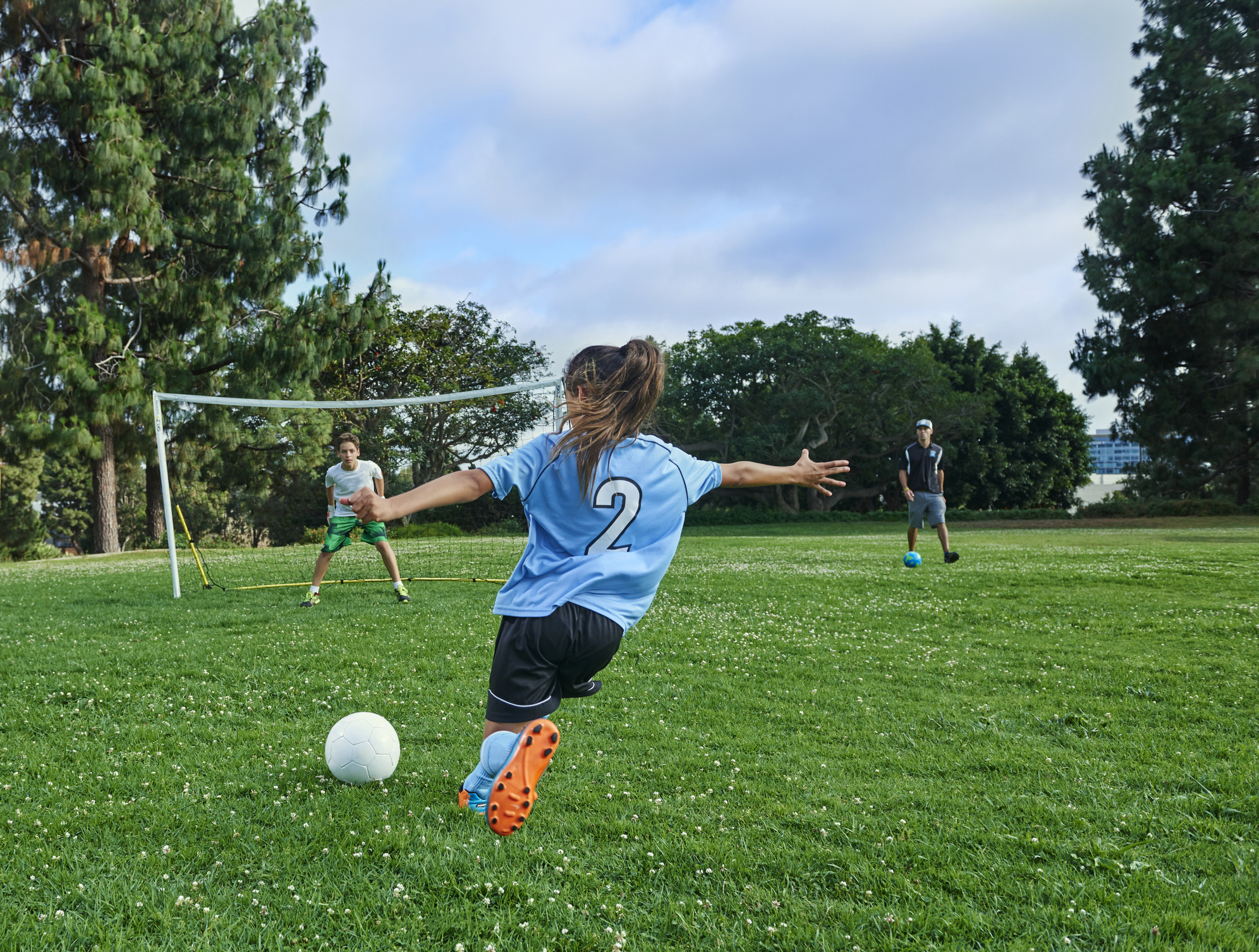This week, world leaders are gathering at the United Nations General Assembly (UNGA) for key decisions and policy making, including a high-level meeting focused on the 30th anniversary of the Beijing Platform for Action, an important moment to recognize sport as one of the most powerful drivers of gender equality.
Sports are far more than entertainment. They build not only champions on the field, but leaders in business, government, and society. Decades of evidence and lived experience make clear that when girls and women have access to sport, they gain invaluable skills and opportunities that ripple across all sectors. It is encouraging to see the global stage beginning to recognize and act on this truth.
[time-brightcove not-tgx=”true”]
As meetings begin and policies are debated, the UNGA should prioritize harnessing sport for equality worldwide. That means adopting policies that ensure equal access to sport, elevate women in leadership roles, and fund inclusive programs for underrepresented athletes, while promoting cross-sector collaboration that makes progress sustainable.
Lessons from Title IX
In the United States, Title IX remains one of the most effective policies ever enacted to advance gender equality in sport and education. Since its passage in 1972, girls’ high school sport opportunities have grown exponentially – by more than three million. And at the collegiate level, women make up 44% of all NCAA athletes, compared to 15% pre-Title IX. Its ripple effects extend to the world’s greatest sports stages with over 1,200 athletes, from 125 countries having NCAA ties at the 2024 Paris Olympics.
This demonstrates how Title IX turned America’s federal school systems into the world’s most prolific training ground, with benefits that extend far beyond the playing field. WSF research shows that sport participation is linked to stronger academic performance, higher graduation rates, and greater aspirations for advanced education.
Yet as powerful as Title IX has been, it is not perfect. The lesson for global leaders is not to adopt its 37 words wholesale, but to adapt its principles—access, accountability, and equality—to local contexts, while avoiding its blind spots.
The equality gaps we cannot ignore
To unlock sports’ full potential as a global driver of equality, we must focus on where gaps persist. Women coaches are one example. While girls’ and women’s participation as athletes has surged, the number of women in head coaching positions at the collegiate level have actually declined—from 90% in 1971 to just 42% today. Elevating more women into coaching is not only about careers; it ensures that girls and young women see themselves reflected in leadership.
Athletes with disabilities are another group often left behind. WSF research reveals that 90% of women with disabilities are not active in sport, and boys with disabilities consistently participate at higher rates than girls. The importance of supporting, empowering, and actively promoting women athletes with disabilities cannot be overstated. Sport has proven transformative in building independence, confidence and community, yet investment in adaptive programs and pathways remain scarce.
True progress demands more than participation—it requires resources, policy, and a commitment to equality that reaches every girl and every woman.
Sport is more than entertainment
The conversation at UNGA rightly places sport beyond wins and losses. Sport strengthens leadership, reduces chronic disease, and supports mental well-being. It teaches teamwork, resilience and leadership—skills essential to thriving in today’s workplaces and communities, driving economic mobility. Estimates indicate that 71% of women who played youth sports, and later held formal leadership roles, rose to positions such as manager, director, president, or c-suite executive.
These health, societal, and economic benefits clearly show that sport is not a “nice-to-have.” It is a proven lever for equality and prosperity, and it belongs on the global agenda for sustainable development.
Progress has never happened in silos, and no single sector can unlock sport’s full power for equality. Governments can set policies and priorities, brands can contribute resources, and community groups and nonprofits bring expertise, research, and community engagement. Each plays a critical role, but only together can they build systems that deliver lasting impact.
Encouragingly, more brands are investing in women’s sports than ever before—from sponsoring leagues to funding grassroots programs. Yet enduring change requires a long-term, cross-sector approach that links investment to accountability and measurable equality goals.
We all win
The world is right to celebrate sport’s power to drive gender equality, but celebration alone is not enough. We must build on proven models like Title IX while addressing who is still being left behind. Sport is more than entertainment; it is a driver of leadership, health, and opportunity that empowers us all to thrive. And progress will only last if governments, brands and NGOs act together, ensuring inclusion and sustainability for everyone.
Decades of research and lived experience confirm this—when girls and women play, we all win. As leaders gather at UNGA, we urge them to act with the urgency and collaboration needed to harness sport’s full potential for equality.

